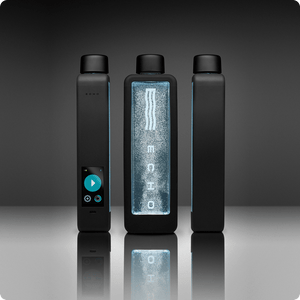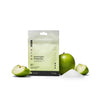The wellness world is no stranger to big claims and viral trends. But when misinformation puts consumer safety at risk, it's time to speak up. That’s exactly what Echo, a leader in hydrogen health technology, is doing in response to a wave of false claims being spread by influencers with financial incentives to mislead.
Recently, online personalities with no medical or scientific credentials have circulated the notion that Echo’s hydrogen water bottle—the Echo Flask—stops producing hydrogen after six months or leaches harmful metals into drinking water. These allegations are not only incorrect; they’re reckless. Backed by a 5-year warranty, third-party lab tests, and over a decade of engineering, the Echo Flask is a scientifically validated tool designed for safe, long-term wellness. But beyond defending their product, Echo is using this moment to highlight a broader issue: the dangerous difference between performance-grade hydrogen products and unstable alternatives like hydrogen tablets.

Why the Echo Flask Is Built to Last:
Echo’s hydrogen water bottle stands out in the industry thanks to:
-
Platinum-coated electrodes for safe, sustained hydrogen generation
-
Proton exchange membrane (PEM) technology for pure hydrogen separation
-
Self-cleaning cycles that preserve performance
-
Over 10,000 uses with no degradation in hydrogen output
-
Published third-party lab results for hydrogen concentration and purity
-
A full 5-year warranty as proof of long-term durability
It’s built for athletes, biohackers, and everyday users looking to invest in their health for the long run—not a short-lived gimmick.
Hydrogen Tablets: The Expensive Myth:
In contrast, hydrogen tablets—often pushed by the same influencers spreading misinformation—pose a number of problems:
-
Unstable when exposed to moisture, degrading rapidly after opening
-
Often contain unregulated ingredients like magnesium or trace heavy metals
-
Lack long-term reliability, with blister packs that fail in humid climates
-
Use misleading science—promoting high “ppm” values that don’t translate to usable hydrogen dosage
-
Require recurring monthly purchases, often costing over $150 to match the hydrogen yield of the Echo Flask
As Echo CEO Josh Carr put it:
“We’ve tested these tablets. We’ve tested our bottles. We publish our data. And we stand behind our technology. That’s the difference.”
A Call for Clarity in a Confusing Market
The real issue isn’t competition—it’s confusion. Influencer-driven hype and fear-based marketing are muddying the waters in a category that should be rooted in health science. Echo is drawing a line, inviting consumers to look beyond the noise and focus on facts.







